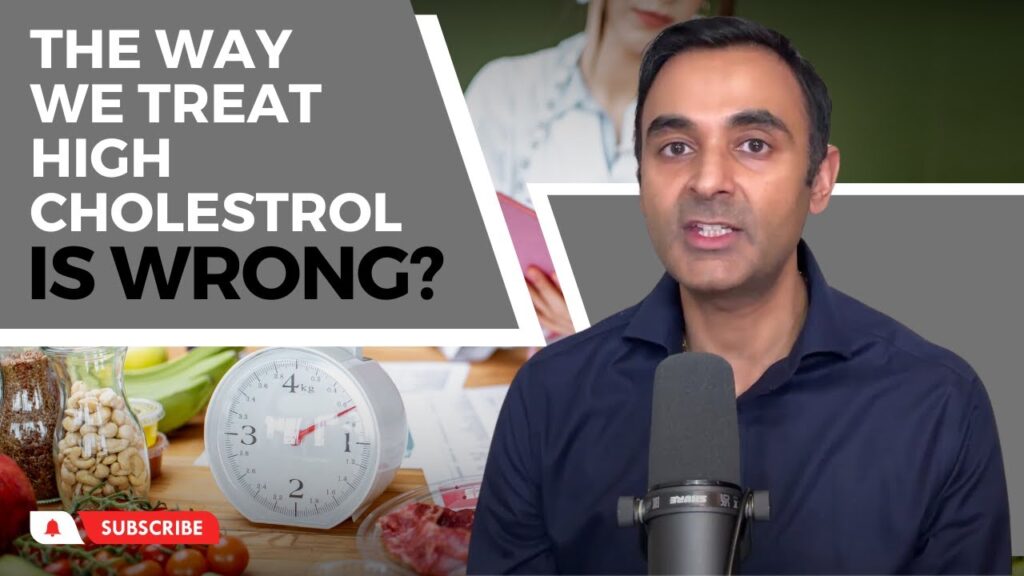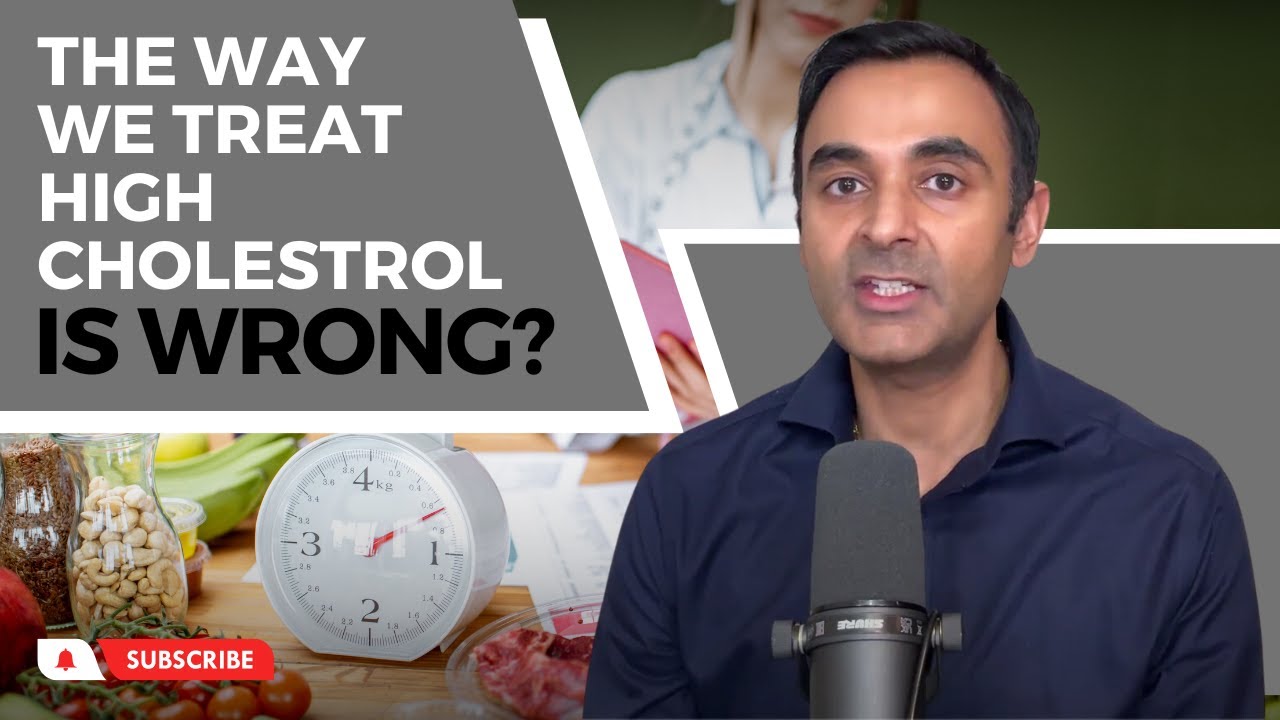You may have noticed a rising concern around high cholesterol, but have we been looking at it from the wrong angle? Dr. Suneel Dhand presents a thought-provoking video challenging our current approach to treating high cholesterol. With the prevalence of statins and other medications, Dr. Dhand sheds light on the need to address the root causes of high cholesterol, such as denovo lipogenesis, oxidative stress, and generalized inflammation. By reevaluating our perspective on high cholesterol, we may uncover new avenues for better health outcomes.
In his passionate message, Dr. Dhand emphasizes the importance of looking beyond the numbers and focusing on the upstream factors contributing to high cholesterol. By addressing lifestyle factors, such as diet, exercise, stress management, and inflammation, we may be able to make more significant strides in improving overall health. Dr. Dhand’s insightful video challenges us to rethink our approach to high cholesterol and encourages us to consider a more holistic view of health.

History of High Cholesterol
High cholesterol has become a prevalent health issue in modern times. It is estimated that about 50% of adults in the United States have been diagnosed with high cholesterol. This increase in diagnosis raises questions about the reasons behind this trend and why it was not as common a century ago.
Traditional Medical Approach
The traditional medical approach to high cholesterol primarily involves the use of statin medications. These medications are designed to lower cholesterol levels in the blood and are often prescribed to individuals with high cholesterol. While statins have been widely regarded as a breakthrough in treating high cholesterol, there are some shortcomings associated with their use.
Alternative Approaches
Some alternative approaches to managing high cholesterol focus on addressing the root causes of the condition. Lifestyle changes, such as dietary adjustments and incorporating more physical activity into daily routines, are often recommended as part of alternative treatment strategies.
Understanding High Cholesterol
To understand high cholesterol better, it is essential to know about LDL cholesterol, de novo lipogenesis, oxidative stress, and inflammation. These processes play a significant role in the development of high cholesterol and related health issues.
Challenges with Current Treatment
One of the challenges with the current treatment of high cholesterol is the narrow focus on cholesterol levels alone. Additionally, the side effects of statin medications and the potential masking of underlying health issues are areas of concern in conventional treatment.
Importance of Lifestyle Modifications
Lifestyle modifications play a crucial role in managing high cholesterol effectively. Adopting a healthy diet and nutritional plan, engaging in regular exercise, prioritizing sleep, managing stress, and considering the benefits of supplements can all contribute to improving overall cholesterol levels and cardiovascular health.
Long-Term Implications
High cholesterol can have significant long-term implications on life expectancy, cardiac health, and the risk of stroke. Misconceptions about statins and their actual impact on health outcomes are factors that need to be addressed for better management of high cholesterol.
Critiques of Pharmaceutical Solutions
Critiques of pharmaceutical solutions for high cholesterol often point out the analogy of termites and a wall to emphasize the need to address root causes rather than simply lowering cholesterol numbers. While medications like statins have their place in treatment, a more comprehensive approach that focuses on prevention is crucial.
Future Directions in Treating High Cholesterol
The future direction in treating high cholesterol may involve a shift in medical philosophy towards holistic approaches. Empowering individuals through education and promoting lifestyle medicine could lead to more effective and sustainable management of high cholesterol.
Conclusion
In conclusion, rethinking treatment strategies for high cholesterol is essential. Embracing lifestyle medicine and considering alternative approaches that focus on root causes rather than just lowering cholesterol levels can provide better outcomes in managing high cholesterol effectively and promoting overall health.
